Information is our Power, Civil weapon of Citizens
25 September 2021 | SDJF_Admin
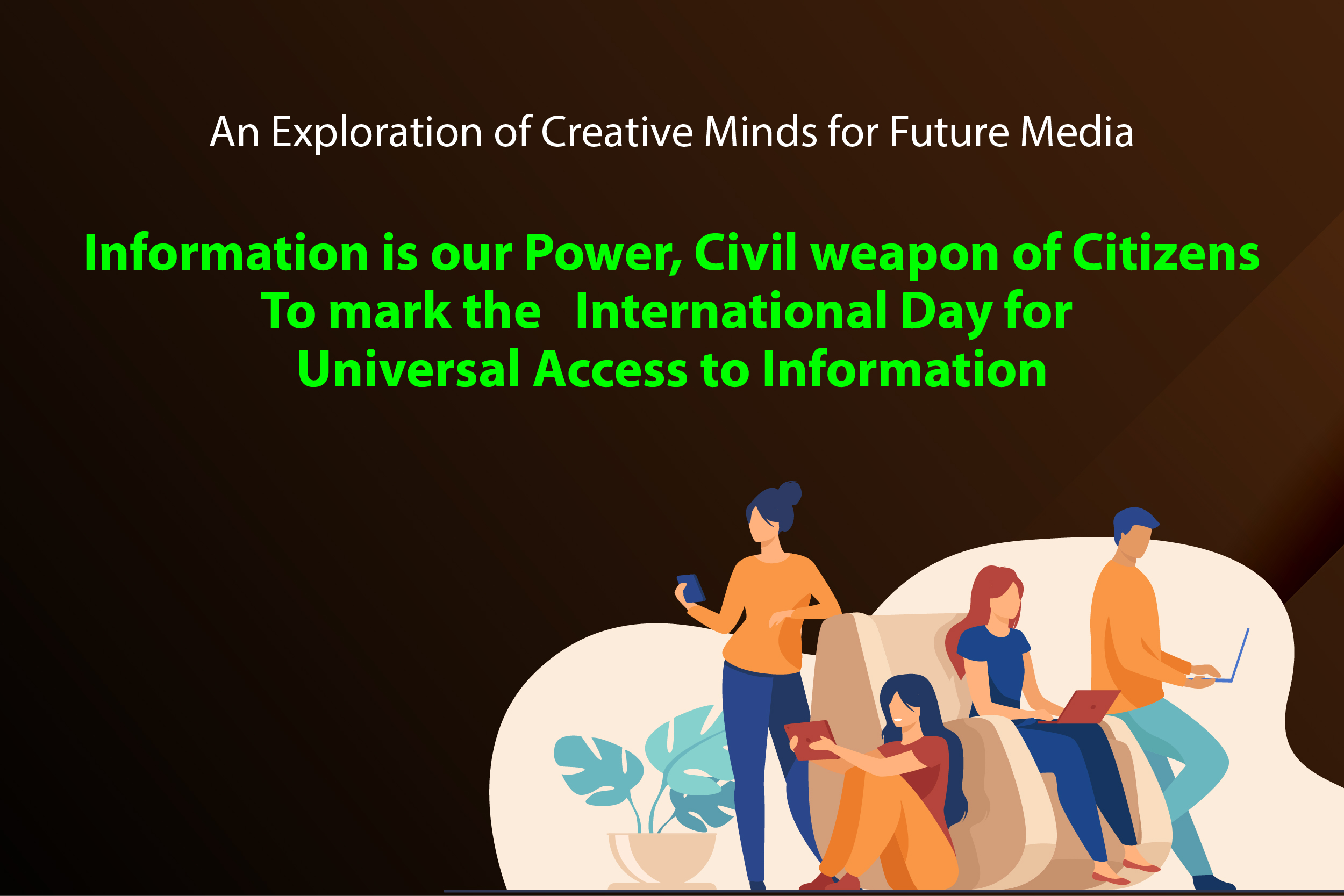
Information is our Power, Civil weapon of Citizens
To mark the International Day for Universal Access to Information
Recognizing the significance of access to information, the 74th United Nations Assembly proclaimed 28 September as the International Day for Universal Access to Information. The theme of the 2021 international day for universal access to information will highlight the role of access to information laws and their implementation to build back strong institutions for the public good and sustainable development, as well as to strengthen the right to information and international cooperation in the field of implementing this human right. To celebrate and highlight the importance of international access to information day the InSPIRE team organized training sessions for the students of University of Peradeniya and Sri Jayewardanapura University on 25th and 26th September 2021 respectively.
The training programs were conducted by Dr. M.C. Rasmin (Independent Media Trainer), Mr. Ananda Dharmapriya Jayasekara (Media Trainer), Mr. Jagath Liyanarachchi (Media Trainer, Attorney at Law), Mr. Rahul Samantha Hettiarachchi (Investigative Journalist) and moderated by Mr. Mohamed Azad (Program director of SDJF).
The first session was facilitated by Mr. Ananda Dharmapriya Jayasekara, Media trainer. He added Access to information laws reflect the fundamental premise that the government is supposed to serve the people. There are, however, a number of more practical ideas underlying the recent widespread recognition of the right to information. Article 19 of UDHR has described information as ‘the oxygen of democracy’; information is essential to democracy at a number of levels. The ability of individuals to participate effectively in decision making that affects them depends, in obvious ways, on information. Access to information is critical for citizens to exercise their voice, to effectively monitor and hold government to account, and to enter into informed dialogue about decisions that affect their lives.
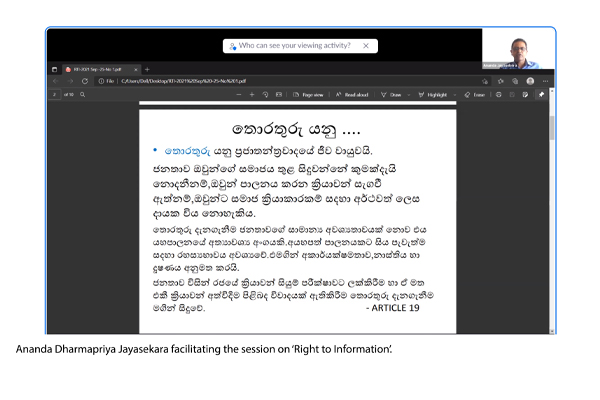
Mr. Jagath Liyanarachchi, Media trainer facilitated the second training program on RTI. During his session he added, Improvements in right to information systems only make a difference if people can freely use the information they obtain, including sharing it publically. Access to information not only facilitates active participation of the people in the democratic governance process but also promotes openness, transparency and accountability in administration. Each government institution has access to information coordinator. The coordinators are responsible for ensuring that any access to information requests received by the intuition are responded to in accordance with the acts. Government institutions are responsible for providing comprehensive, accurate and up to date descriptions of their programs, activities, related information. Government institutions have 14 days to respond to an access to information request. The institution may be able to process your request more quickly if your request is more specific and detailed. For a request made under the access to information act, an extension beyond the original 14 days may be taken if the request involves a large number of records, or if consultations with other government institutions are necessary because the records include information provided by them. If an extension is required, it will take 21 days to provide requested information.
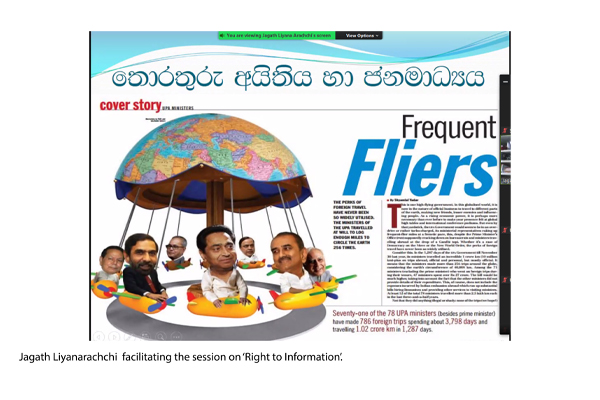
Mr. Rahul Samantha Hettiarachchi, Investigative Journalist facilitated both programs and shared lots of his personal experiences on ‘filing RTI application as a citizen of Sri Lanka’. He mentioned, being a successful journalist is more than hunting down information. How journalists process the information, then put it together, are key steps for news reports. Gathering information through the RTI act, a journalist can contribute to ensuring transparency in public, professional, social and personal spheres. Legislation of the RTI act gives the opportunity to the journalists to analyse data and investigate incidences. Without using RTI act it is very difficult for a journalist to go into the depth of any matter properly. With the legislation of RTI act, a journalist easily gathers information which helps to ensure transparency in the public, professional, social and personal spheres. Gathering information through using the RTI act particularly can help to expose corruption, mismanagement and wastage of public funds which fundamentally serve the public interest.
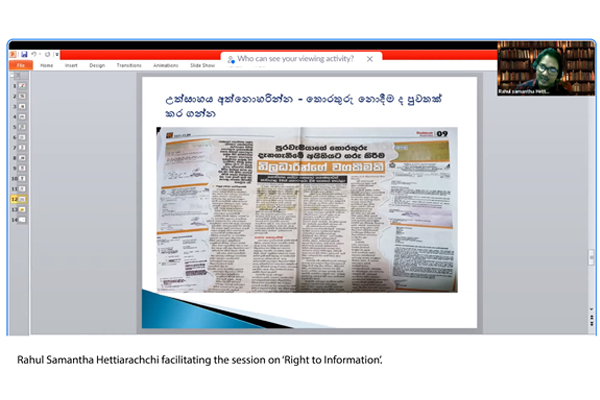
The activity is implemented as a part of Incubator Spaces for Promoting Information Rights and Freedom of Expression (InSPIRE) project implemented by Sri Lanka Development Journalist Forum (SDJF) in partnership with Helvetas Intercooperation and funded by the European Union.
For more info: https://www.ldjf.org/ Facebook: https://www.facebook.com/LDJF.org
Latest News

SDJF and MIM Launch Sri Lanka’s First Certificate Course on Ethical Reporting and Minority Protectio
27 February 2025
[ Read More ]

Kicking off 2025 with positivity and teamwork!
3 January 2025
[ Read More ]

SDJF Partners with HELVETAS to Launch EMPOWER: Tackling Youth Radicalization and Building Resilience
10 December 2024
[ Read More ]

SDJF Concludes Successful Annual General Meeting 2024
30 November 2024
[ Read More ]
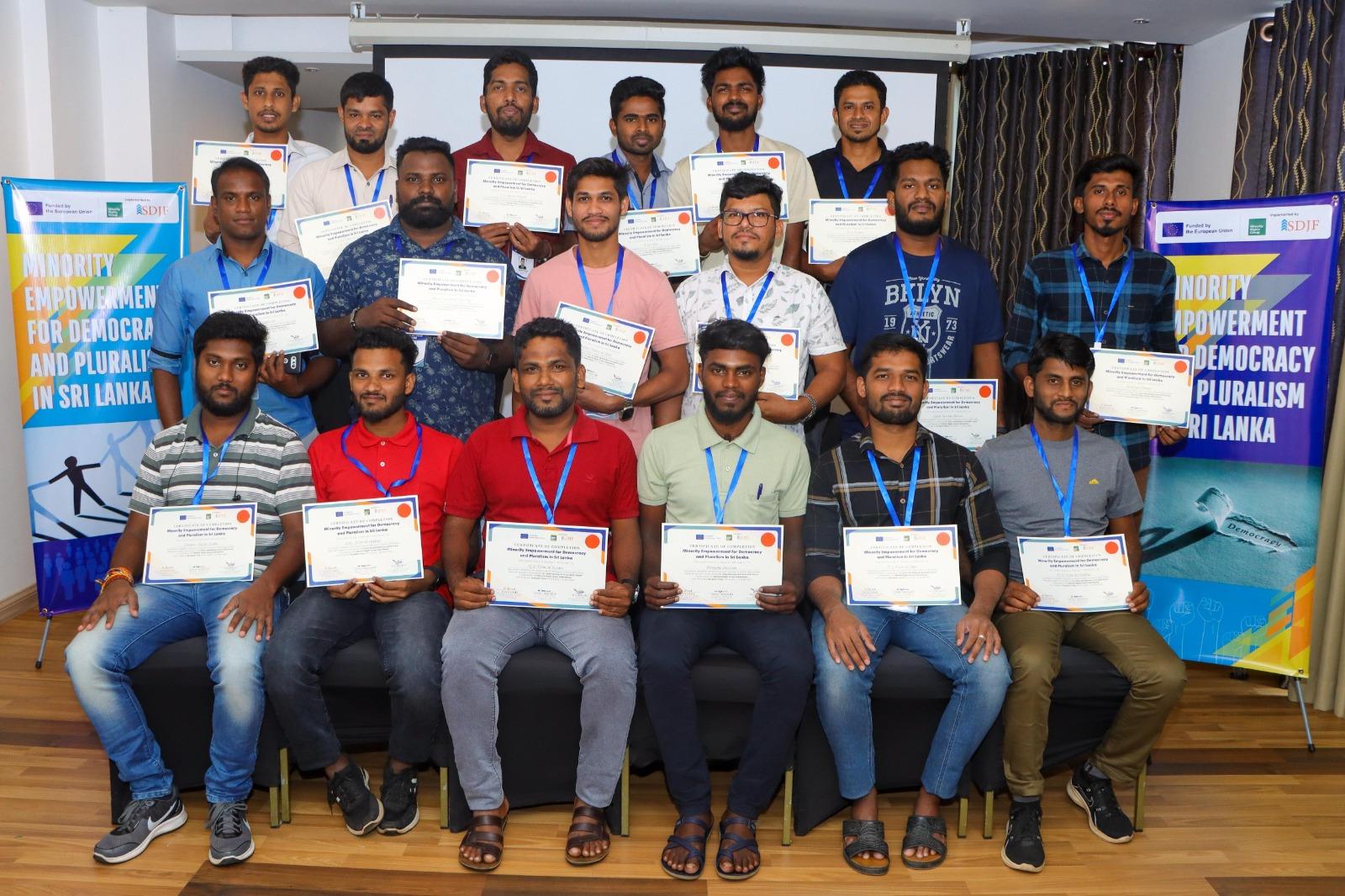
Empowering Sri Lanka’s Next Generation of Journalists: A Journey Toward Ethical and Inclusive Media
20 October 2024
[ Read More ]